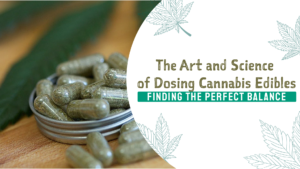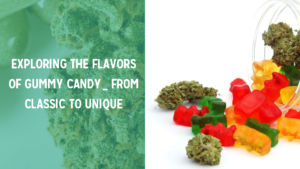
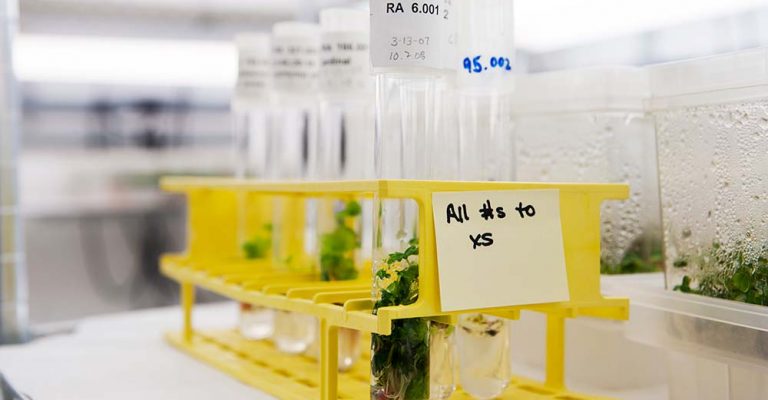
Currently, there is a lot of controversy around the use and effects of cannabis. However, since the legalization of cannabis in some areas, scientists can now explore the benefits of cannabis more extensively.
Although many people still contest the therapeutic benefits of cannabis, much evidence suggests it could have endless potential. If you are unsure whether this is true, read on to find 5 evidence-based benefits of cannabis edibles.
What are cannabis edibles?
Cannabis edibles are an increasingly popular way of consuming cannabis. Edibles contain cannabis or extracted compounds from cannabis, like CBD or THC. Some edible products to which cannabis is added include:
- Brownies, cookies, or other baked goods.
- Confectionery (cannabis gummies).
- Chocolate.
- Drinks.
- Supplements.
Although these products have been popular in the past, cannabis gummies have recently gained more attention. The reason why cannabis gummies are in greater demand now is that the amount and type of cannabis compounds you add to these products are easier to regulate. For example, you can alter the amount of CBD and THC that you add. You can also decide which one to use or choose your own ratio.
However, you might be wondering why people use cannabis edibles in the first place? While many believe that cannabis is taken to just get high, this is not always true. More people are now opting for CBD because it does not make anyone high, yet it has many therapeutic benefits.
While there have been over 400 different compounds discovered in the cannabis plant, CBD and THC remain the primary ones of interest, although some scientists are researching the therapeutic benefits of other compounds in this plant as well.
CBD
Cannabidiol, shortened to CBD, is being researched immensely for its beneficial effects. You will hear people say that CDB is the compound in cannabis that does not make people high. Researchers have discovered that CBD has the potential for treating:
- Inflammation
- Pain
- Convulsions
- Muscle tension
- Anxiety
- Depression
- Stress
- Vomiting and nausea
THC
Tetrahydrocannabinol, shortened to THC, is also being researched widely. Unlike CBD, THC is the compound from cannabis that can make people high. However, despite this, THC still has some promising benefits. For now, researchers say that THC could treat:
- Inflammation
- Pain
- Muscle tension
- Vomiting and nausea
- Increasing appetite
Suppose you are curious about the evidence which supports some of these claims. In that case, the information below offers a greater overview and provides more evidence on the benefits of edibles.
1. Cannabis can help people with epilepsy
Did you know that CBD, a compound extracted from cannabis, has already been approved by the FDA? From this evidence alone, it is clear that cannabis certainly has a beneficial and therapeutic effect (1).
Epidiolex is a prescription medicine already available in some countries, including the United States. Currently, Epidiolex has been approved for anyone over the age of one.
This medicine is intended to help people who experience seizures related to Lennox-Gastaut syndrome, Dravet syndrome, or tuberous sclerosis. When taken twice daily, Epidiolex can reduce the frequency of seizures (2),(3).
Therefore, CBD from cannabis has already been approved for medical use. Some experts also claim that since the approval of Epidiolex, other medicines containing cannabis are more likely to be approved. From this, cannabis could be made available in the future for other health conditions as well.
2. Cannabis can help cancer patients
Cancer can be overwhelming for many patients because the disease itself and the side effects from treatment can cause severe problems. As a result, it is understandable why so many cancer patients would turn to cannabis to help improve their condition.
Thankfully, there is strong evidence that confirms cannabis can help people with cancer. However, the best aspect of this treatment is that it has more than one therapeutic benefit for some patients.
Dronabinol is another FDA approved cannabis treatment that contains the cannabis compounds THC and CDB (4). Dronabinol is intended to help cancer patients who experience vomiting and nausea from chemotherapy.
Other evidence shows that dronabinol might also provide some pain relief and increase appetite.
Therefore, cannabis treatments such as dronabinol can help cancer patients by enabling them to improve their quality of life. It also offers some relief from harsh treatments.
3. Cannabis can reduce pain
For centuries, cannabis has been used for pain management (5). Ancient Chinese texts show that humans started using cannabis to reduce pain from 2900 B.C onwards.
Since then, good evidence has confirmed that cannabis can alleviate various pain types. Right now, there is a high demand for adequate pain relief due to the opioid crisis, and cannabis might help.
Many experts have come forward saying that cannabis could be the answer, especially for people who experience chronic pain. However, cannabinoid drugs currently approved by the FDA are not intended for pain (6).
So far, some cannabis trials have shown promising results for neuropathic, inflammatory, and cancer pain (7). While most studies are conducted in mice, human studies have demonstrated that cannabis is more suited to chronic over immediate pain.
Overall, cannabis might not be suitable for all people with pain, but when more trials have been completed, experts say that cannabis might be the next available painkiller for people with chronic pain.
4. Cannabis can increase appetite
Additionally, the FDA-approved treatment dronabinol can also help patients suffering from anorexia related to weight loss from AIDS (8). People who suffer from cancer may also experience anorexia. Again, this treatment could also help them to regain some weight.
Anorexia is a complication of some diseases and is characterized by severe weight loss and the inability to put weight back on. Hence, when dronabinol stimulates someone’s appetite, it will encourage them to eat more. In some cases, this can enable someone to put on additional weight if needed.
By resolving a lack of appetite, the quality of life for these patients is also improved. Because stimulating the appetite encourages weight gain and provides someone with more nutrients for their body (9), this in turn can have a beneficial flow-on effect for other areas in the body.
5. Cannabis can reduce anxiety
Although FDA-approved cannabis treatments are yet to be recommended for anxiety, there is supporting evidence that cannabis can alleviate some anxiety and stress. Many people use cannabis for anxiety, and researchers are now paying attention to this (10).
However, it is essential to realize that CBD is the main compound of interest for treating anxiety, whereas THC is not recommended because it can make anxiety worse for some people.
Future research will look into this further, but since one meta-analysis showed that so many people self-reported that cannabis is beneficial for their anxiety, this is certainly worth acknowledging (11).
Overall, studies have shown that anxiety is a common reason for cannabis use. While the FDA is yet to approve a cannabis treatment for anxiety, this does not necessarily mean that cannabis cannot help in this area.
Summary
There are many evidence-based benefits of cannabis. Undoubtedly, there will be many more discovered in the future. Some medicines like Epidiolex and dronabinol have already been approved by the FDA, and these treatments have helped people immensely.
Cannabis certainly has a significant amount of potential that should not be dismissed. With greater accessibility, it will definitely be studied a lot more in the near future.
Recent reviews
-
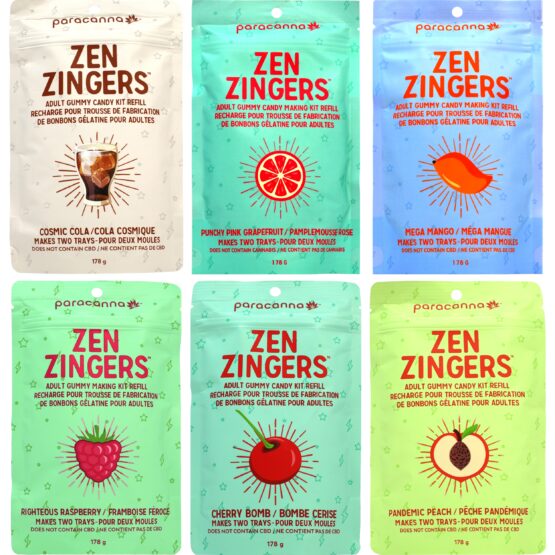 Refill Mixed 6 Pack
Rated 5 out of 5by tara blazek
Refill Mixed 6 Pack
Rated 5 out of 5by tara blazek -
 Refill Mixed 6 Pack
Rated 5 out of 5by facepersonface
Refill Mixed 6 Pack
Rated 5 out of 5by facepersonface
Recent Articles
Featured Products
-

Righteous Raspberry Gummy Making Kit
Rated 5.00 out of 5$24.99 Add to cart -
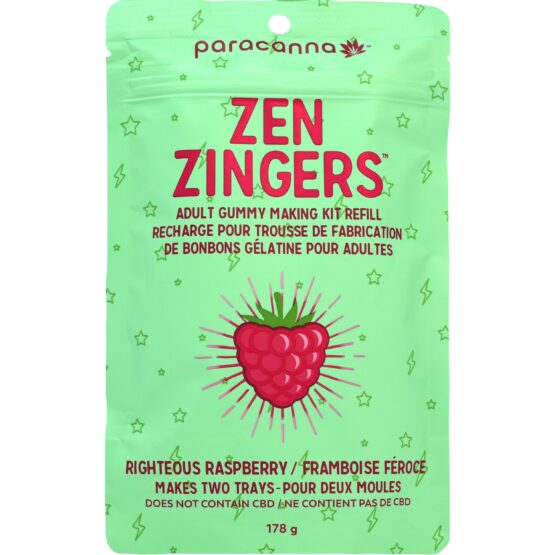
Righteous Raspberry Gummy Mix Refill
Rated 4.85 out of 5$18.99 – $68.37 Select options This product has multiple variants. The options may be chosen on the product page

